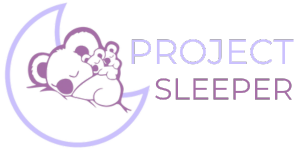
In the modern age, where screens glow and city lights never dim, the boundaries between day and night blur. The pervasive influence of artificial light impacts more than just our waking hours—it seeps into our nights, affecting the quality of our sleep.
In this article, we delve into the ways light intrusion disrupts our sleep patterns and explore strategies to restore the restorative power of the night.
-
Understanding Circadian Rhythms: Our bodies are governed by circadian rhythms— an intricate internal clock that orchestrates our sleep-wake cycles. These rhythms are in harmony with the natural rise and fall of the sun, signaling our bodies when to be alert and when to rest. However, the ubiquity of artificial light, especially the blue light emitted by screens, can disrupt this delicate synchronization. When exposed to such light at night, our bodies receive mixed signals, hindering our ability to wind down and fall asleep naturally.
-
Disruption of Melatonin Production: Melatonin, often referred to as the "sleep hormone," plays a crucial role in our sleep patterns. It's the chemical conductor that guides us into slumber. Yet, the intrusion of light, particularly blue light, interferes with the production of melatonin. Screens, streetlights, and other sources of artificial illumination suppress melatonin, leading to difficulties in falling asleep and maintaining restful sleep throughout the night.
-
Disruption of Sleep Architecture: Our journey through the night involves various stages of sleep, each with distinct functions. Rapid Eye Movement (REM) sleep, for instance, is the stage where most dreaming occurs and is crucial for memory consolidation and emotional processing. Light disruption can impede the natural progression of sleep stages, including REM sleep, leading to fragmented sleep. This fragmented sleep, in turn, can result in grogginess, poor concentration, and heightened irritability during the day.
-
Impact on Health and Well-Being: Beyond the immediate challenges of poor sleep, prolonged light disruption can have far-reaching consequences for our health. Chronic sleep problems have been linked to an increased risk of various health issues, including obesity, diabetes, cardiovascular diseases, and even mental health disorders such as depression and anxiety. Thus, the consequences of light intrusion extend beyond drowsiness, affecting our overall well-being.
As the realm of the night grapples with the intrusion of modern light, our pursuit of restorative sleep becomes a deliberate endeavor. By understanding the complexities of our internal rhythms, melatonin production, sleep architecture, and the impact on our health, we become better equipped to reclaim the nights.
As we traverse the landscape of light disruption, we unearth a treasure trove of strategies that lead to serene nights and energized mornings.
Are you ready to embrace a new era of sleep? Imagine a sleep solution that not only recognizes the challenges of our illuminated world but also counteracts them. DreamWave™ Headphones beckon—a bridge between you and the sleep you've been longing for.
By cocooning your senses in darkness and serenading you with soothing sounds, DreamWave™ offers respite from light's relentless intrusion. Say goodbye to fragmented sleep and greet the morning refreshed.



